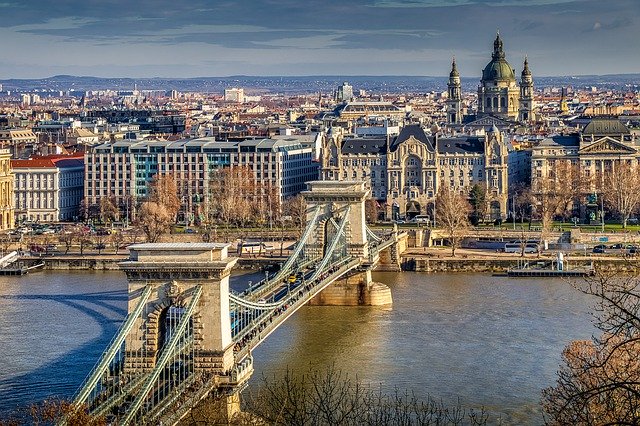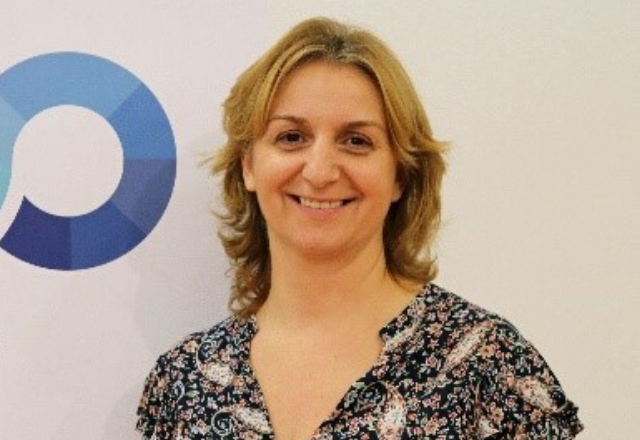Interview: Online Meetings and a Digital Conference for Energy Efficiency
by Samuel Held and Julia Unverzagt, GIZ/EUKI
The key approach of ALLIES – Activating and Learning from Local Investment in Energy Savings is to involve citizens and local businesses on the regional level as investors and facilitators for energy efficiency projects in enterprises and municipal premises. The EUKI project establishes new types of measures and organizations to activate investments in cost-effective energy efficiency projects. Investments generate steady returns for reinvestment and provide citizens with tools to contribute to climate action as well as local economic and environmental sustainability. Katalin Herner, Executive Director of KÖVET Association, shares some insights on how to deal with the current crisis and talks about what she expects society to learn from these experiences.

Ms Herner, you planned a final project conference in Krk, Croatia, for the end of May. When did you know that you would have to cancel it and what was your reaction to it?
The EUKI ALLIES Consortium found out about the necessity to cancel the Conference on Krk in March when preparatory measures had already been taken by all partners and registrations were going. We were disappointed but had to look at what could be done to arrange an online conference.
More about the ALLIES Conference
ALLIES Virtual and Interactive Final Conference: “Financing Local Energy Transition”
26.05.2020, 09:00-17:00 CEST
Please register by clicking on the link before 22nd May to receive the connection details.

Ms Herner, you planned a final project conference in Krk, Croatia, for the end of May. When did you know that you would have to cancel it and what was your reaction to it?
The EUKI ALLIES Consortium found out about the necessity to cancel the Conference on Krk in March when preparatory measures had already been taken by all partners and registrations were going. We were disappointed but had to look at what could be done to arrange an online conference.
You decided to move the conference “Financing Local Energy Transition” to an online format on May 26. What can the participants expect?
Participants can expect to meet key project members online as well as a number of international presenters. Besides presentations about the results of the project there will be a panel discussion as well as parallel interactive capacity building sessions for all interested parties concentrating on three regions: the Baltics, the Balkan and the Mediterranean. We think it could even reach a wider circle of interested parties as online meetings could be easier than travelling far.
Many other organisations are confronted with similar challenges and consider online events. Can you give them advises? Which tools or programmes do you use?
These unprecedented times also provide, beside difficulties and challenges, many great opportunities. It takes a lot of effort to organise an online event, too. Cooperation between all project partners is essential as well as a strict schedule and to-do lists with deadlines and frequent checks. Currently we are using ZOOM and WEBEX for communication and organisation. We have been using these channels for some time now within the project so it was obvious that they will be good tools for a webinar, too.
These unprecedented times also provide, beside difficulties and challenges, many great opportunities.
Katalin Herner KÖVET
How does the cooperation within the ALLIES project work in these days? Is the work limited due to restrictions or do online meetings bring Europe even closer together?
In the course of our organisational and preparatory work, we are holding weekly or even more frequent online meetings. We find the situation challenging but there are also new ways opening up as we try different channels. We can communicate via phone, e-mail and video conferences, so communication is not limited, but rather very active and involving. We also use a lot of social media channels to promote the event. This hasn’t changed in the course of the project.
Which general consequences do you expect for climate action in Hungary and Europe?
In general, digital solutions are becoming faster and new communication channels are used even more frequently which has a positive side effect for the climate as travelling and GHG emissions are decreasing. We hope that some solutions will live on after the crisis. Also, we think that the situation has once more revealed the unsustainable state of our lives and hope that humankind will find new, sustainable pathways from now on.
Also, we think that the situation has once more revealed the unsustainable state of our lives and hope that humankind will find new, sustainable pathways from now on.
Katalin Herner KÖVET
